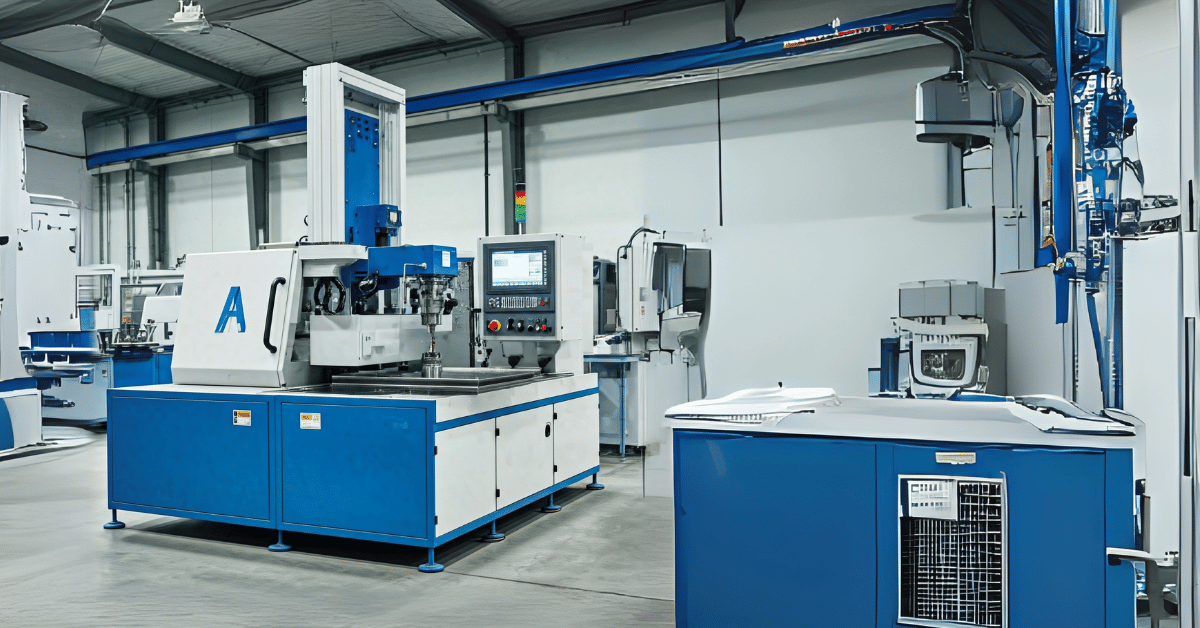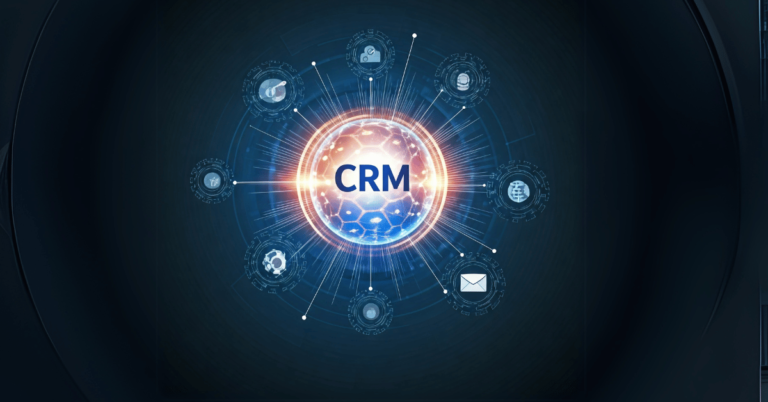10 Best ERPs for Manufacturing – Benefits & Challenges

Technological change is transforming how manufacturing businesses operate, pushing them to adopt cloud-based ERP systems over legacy on-premises solutions. These modern tools streamline workflows and reduce labor and IT costs effectively.
In 2024, top manufacturing ERP systems integrate AI-driven business intelligence, enhancing decision-making and improving profitability. They scale seamlessly with your manufacturing business size, supporting growth and boosting your bottom line.
Careful research and expert recommendations can guide manufacturers in finding the perfect ERP system. With features like financial management and manufacturing management software, these tools optimize operations while staying within budget and driving scalability.
In this ultimate guide, we have explained the best erp for manufacturing businesses. So keep reading.
List Of the Best Manufacturing ERP Solutions
Here is a detailed overview of top ERP solutions that are transforming the manufacturing sector. These platforms bring innovative tools, seamless scalability, and powerful features to optimize processes and drive business growth efficiently.
NetSuite ERP: Transforming Manufacturing Businesses
NetSuite ERP is a cloud-based solution designed for manufacturing businesses aiming for innovation and growth. This platform offers comprehensive tools for accounting, financial planning, and manufacturing operations, making it a top choice for businesses seeking efficiency and scalability.
With real-time analytics and business intelligence, NetSuite simplifies back-office operations, including manufacturing processes and installations. This enables smarter decision-making for enhanced profitability and sustainable growth. Backed by Oracle, this SaaS solution provides modular options that cover inventory management, production management, supply chain management, and order management. Its support for multi-currency, multi-entity, and multi-site operations makes it ideal for multinational manufacturers.
NetSuite integrates seamlessly with tools like QuickBooks, ensuring a smooth transition from traditional systems. Its predictable implementation fees, user-based costs, and flexible subscription model cater to businesses of all sizes. By combining financial management, warehouse management, and advanced analytics, NetSuite ERP empowers manufacturing businesses to achieve operational excellence, improve retention rates, and increase profitability. It is an excellent choice for modern manufacturers seeking an advanced, mobile ERP solution.
Epicor Kinetic: Proven Efficiency for Manufacturers
Epicor Kinetic is a leading ERP system with robust capabilities tailored for discrete manufacturers, including mid-market and global businesses. It ensures efficiency and growth across varying revenue scales.
Offering both cloud and on-premises deployment options, Epicor Kinetic provides real-time monitoring, quality management, and global financial integration. Its user-friendly design and intuitive navigation make it accessible for businesses of all sizes, from small enterprises to large, multi-site, multinational organizations.
With flexible pricing options, including lease and subscription models, Epicor Kinetic accommodates different budgets. The competitive cost per user and reasonable implementation fees make it an attractive choice for businesses. Its proven efficiency, high retention rate, and global support make Epicor Kinetic a reliable ERP solution for manufacturers aiming to streamline their processes and drive growth.
Acumatica Cloud ERP: Innovation for Growing Manufacturers
Acumatica Cloud ERP is a leading cloud-based solution for manufacturers and growing businesses. Supporting SaaS, private, public, and hybrid cloud models as well as on-premises deployments, it offers unmatched flexibility for multi-site and multinational operations.
Priced between $7,500 and $150,000, with implementation fees starting at $10,000, Acumatica provides excellent value. Its advanced and enterprise editions cater to mid-sized and discrete manufacturers, offering tailored solutions for scalability.
The platform integrates AI and IoT technology with a user-friendly interface, ensuring global adaptability and supporting technical roles. With a 78% retention rate, Acumatica demonstrates a strong commitment to customer satisfaction and long-term success. By streamlining work order management, sales, inventory, and field services, it empowers manufacturers to achieve efficiency and growth. Industry-specific add-ons further enhance its capabilities, making it ideal for small and mid-sized manufacturers.
IFS Cloud: Modern ERP for Diverse Manufacturing
IFS Cloud is a contemporary ERP system that combines enterprise resource planning with advanced tools such as Enterprise Asset Management (EAM) and Enterprise Service Management (ESM) to simplify business management.
This solution supports both discrete and process manufacturing, making it suitable for a wide range of industries. Offering flexible deployment options—cloud or on-premises with subscription plans—IFS Cloud simplifies supply chain and finance management for multi-site and multinational companies.
Its Service-Oriented Architecture (SOA) ensures seamless integration across business operations. The advanced features of IFS Applications 10.0 help global manufacturers streamline their processes and achieve growth efficiently.
Infor CloudSuite Industrial: Efficiency and Agility
Infor CloudSuite Industrial, also known as Syteline, provides robust ERP solutions for small and medium-sized businesses (SMBs) and enterprises. Designed for discrete, process, and mixed-mode manufacturing, it enhances efficiency and supports smart manufacturing with advanced tools.
Offering both cloud and on-premises deployment options, Infor CloudSuite adapts to businesses of all sizes, from small enterprises to multinational corporations. Its scalable user range (5–1000 users) and transparent pricing—starting at $150 per user per month—make it accessible to various industries.
Key features such as advanced planning and scheduling (APS), quality management, materials management, and financial management empower manufacturers to optimize production processes, improve operational efficiency, and make smarter decisions. With installations in over 2,500 businesses globally, Infor CloudSuite Industrial is a reliable ERP solution for modern manufacturers.
Microsoft Dynamics 365 Business Central: Cost-Effective Solutions
Business Central is a cloud-based ERP system offering integrated solutions for inventory control, production planning, and supply chain management. With real-time access, businesses can streamline operations and enhance warehouse management through features like serial and lot number traceability.
Tailored for enterprise manufacturers, this platform provides scalable solutions for midsize businesses and multi-site, multinational enterprises. It supports digital transformation and rebranding through its private cloud and on-premises deployment options.
With pricing starting at $175 per user per month, Business Central offers a retention rate of 91% and has been installed in over 2,000 businesses. Its scalable solutions make it a reliable choice for manufacturers aiming to improve project management, financial efficiency, and operational growth.
SAP S/4HANA: Streamlining Complex Processes
SAP S/4HANA is a modern ERP platform designed to simplify complex manufacturing processes. By integrating AI, machine learning, and analytics, it provides real-time insights for better decision-making.
SAP’s solutions, including SAP Business One and SAP Business ByDesign, cater to mid-market manufacturers and large enterprises. With predictive MRP, demand-driven replenishment, and efficient vendor delivery management, SAP streamlines inventory and operational processes.
With over 10,000 installations globally, SAP S/4HANA delivers scalability and reliability. Offering cloud and on-premises deployment options, its pricing starts at $200 per month, making it a preferred choice for manufacturers seeking advanced ERP capabilities.
SYSPRO: Tailored Solutions for Manufacturers
SYSPRO is a trusted ERP system offering industry-specific solutions for discrete and process manufacturers. With real-time analytics, AI, and IoT integration, SYSPRO enables smarter decision-making and operational efficiency.
Boasting a 90% user satisfaction rate and a 95% retention rate, SYSPRO has over 15,000 installations worldwide. It offers flexible deployment options—on-premises or cloud—and pricing that starts at $150 per user per month. Its customizable features ensure manufacturers get the best ERP solution tailored to their needs.
Global Shop Solutions: Trusted by Manufacturers
Global Shop Solutions (GSS) is an ERP system that helps manufacturers streamline inventory, shop management, and CRM processes. Founded in 1976, this Texas-based family-owned firm has a global presence with over 3,000 installations.
GSS offers flexible deployment options and competitive pricing. Its features include multi-site and multinational support, making it suitable for businesses of all sizes. With financing options and transparent pricing, GSS is a reliable ERP solution for manufacturers looking to scale efficiently.
Plex Manufacturing Cloud: Modern SaaS for Mid-Sized Manufacturers
Plex Manufacturing Cloud is a cloud-based ERP system built on a SaaS model. Designed for industries like automotive, aerospace, and food and beverage, it ensures seamless updates and real-time data access.
Plex leverages advanced technologies like AI, IoT, and blockchain to enhance productivity and decision-making. With flexible deployment options and subscription-based pricing models, Plex is ideal for businesses with revenues ranging from $10 million to $100+ million. Supporting over 1,200 companies globally, it offers reliable solutions for manufacturers seeking growth and operational efficiency.
What is manufacturing ERP?
Manufacturing ERP is a cloud-based enterprise resource planning (ERP) system that integrates business processes across manufacturing companies. It uses AI and machine learning to streamline everything from production scheduling to inventory management, including bill of materials and warehouse management.
ERP helps in managing accounting, payroll, and finance by automating tasks like accounts payable (AP) automation. It also supports procurement and supply chain management for distributors and raw materials, ensuring efficient management of resources.
With advanced business intelligence, ERP systems provide real-time data through smart IoT sensors on the shop floor. This enhances decision-making in manufacturing processes, including materials requirements planning (MRP), master planning, and utilizing third-party add-on apps for specialized needs.
For eCommerce and finished goods inventory, Manufacturing ERP ensures seamless customer relationship management (CRM). It supports product lifecycle management (PLM) and work-in-process tracking, offering a comprehensive solution for managing all stages of production.
Manufacturing ERP Benefits and Features
Choosing the right ERP system is crucial for manufacturing companies. A comprehensive enterprise resource planning (ERP) system helps improve business operations by integrating cloud systems and manufacturing management software, making it an intelligent choice for modern businesses looking to streamline their operations and boost efficiency.
The selection process can feel daunting, but using an ERP comparison tool simplifies it. By comparing ERP features and manufacturing ERP software solutions, companies can make a more effective decision. This ensures recovery from any previous system damage and avoids self-inflicted wounds that could harm future growth and hinder progress.
Cloud-based manufacturing ERP software systems offer advanced features, making them ideal for manufacturing companies. These software solutions provide a detailed guide to help businesses improve processes, offering valuable insights into every part of their operations. From production to inventory management, these systems help companies stay ahead of the competition.
In today’s industry, using the latest manufacturing ERP system is a game-changer. This cloud-based solution offers a thorough comparison of ERP features, ensuring companies choose the best ERP for manufacturing to enhance their operations and productivity. With the right system in place, companies can confidently move forward without fear of damage to their growth or business operations.
Selecting the Best Manufacturing ERP for Your Business
When choosing the best ERP for your manufacturing business, it’s important to consider the business size, whether you’re a small business, medium business, or a large business. Different ERP tiers fit different scales, from cloud models to on-premises models.
- Scalability is key. You need a system that grows with your company.
- SAP Business One is ideal for SMBs, while SAP S/4 HANA serves enterprise-scale ERP needs.
- Thousands of unique users can access these systems, making them efficient for any operations.
Effective enterprise resource planning systems help businesses handle manufacturing needs efficiently. A good manufacturing software solution improves day-to-day activities, streamlining tasks for IT specialists and IT departments.
By choosing the right ERP software, you’ll support your platform, operations, and networks, boosting productivity across all aspects of your business. Whether you need to manage hundreds or thousands of transactions, the right ERP will handle it.
Consider the vendors you trust, as each offers tailored solutions for different industry needs. Whether you’re managing a small team or supporting thousands of employees, the right ERP can make your business more successful.
Cloud-Based vs. On-Premises ERP: Which Is Best for Manufacturing?
Cloud-based ERP systems offer flexibility and cost-effective solutions for manufacturing businesses. Using Cloud ERP software means accessing the system through Cloud-based servers, often with monthly subscription fees. This software-as-a-service (SaaS) model eliminates the need for on-site servers and extensive hardware.
- Advantages of Cloud ERP include easy deployment, low upfront investment, and remote access to business data.
- With Cloud ERP, maintenance, updates, and patches are handled by the vendor’s team, saving time and resources.
- Customization and features of Cloud ERP can be scaled based on business needs, making it ideal for small businesses or manufacturing businesses.
On-Premises ERP: Control and Security
On-premises ERP software offers more control over the data and security of your business processes. With on-premises ERP, businesses need to invest in on-site servers and handle the installation and maintenance in-house. This model is suited for companies that prefer greater control over their system.
- Costs of hardware and installation are higher, but it gives businesses complete ownership of their ERP system.
- It provides a more customized solution that can be tailored to specific manufacturing business needs.
- On-premises systems typically have longer deployment times and require a skilled team for implementation.
Key Differences Between Cloud and On-Premises ERP
Choosing between Cloud-based ERP and on-premises ERP depends on the size and needs of the business. For manufacturing businesses, Cloud ERP offers faster deployment, lower costs, and less reliance on a dedicated team.
- Cloud-based systems are easier to implement and often have fewer long-term costs.
- On-premises ERP systems provide greater customization and control, but require more upfront investment and time for set-up.
Evaluating a Manufacturing ERP Vendor
When evaluating a manufacturing ERP vendor, it’s important to carefully assess different ERP suites, providers, and their software. A good ERP vendor will offer effective integration and technologies tailored to your business.
- ERP Vendor Selection: Choose an ERP provider who understands the manufacturing industry. Their product strategies and services should align with your long-term business goals.
- Customization and Costs: Understand licensing fees, implementation costs, and any hidden or added fees. Don’t let high customization costs or uncommunicated fees waste years of progress.
- Vendor Communication: Communication is key. The sales and support staff should be responsive and respectful, answering all your questions promptly and clearly. Look for a vendor who values collaboration.
- Implementation and Support: Ensure the ERP vendor offers solid support during implementation. Efficient response time and long-term support can make all the difference in smooth operation.
By assessing all these factors—technologies, costs, customization, and support—you can avoid choosing an unsuitable ERP vendor and find a valued collaborator for future improvements.
Common Challenges with ERP
Implementing ERP software systems in the 21st century brings several challenges. Cloud ERP solutions offer flexibility, but cloud deployment can increase costs. Ensuring data security and IT security is crucial, as these systems handle sensitive information.
- Access Control & Security: Managing role-based access control and two-factor authentication can help prevent unauthorized access. However, adapting access control systems to meet new business needs is often difficult.
- Cloud vs On-Premises: While cloud ERP solutions offer automatic system updates, businesses may face challenges in transitioning from on-premises ERP solutions, including data migration and disruption to operations.
Customization and Integration
Customizing ERP systems to suit specific business needs requires significant planning. ERP vendors often provide customization options, but the development and execution process can be time-consuming. Ensuring proper integration with existing business systems is crucial for smooth operation.
- Costs and Subscription Models: Many cloud ERP solutions operate on a subscription model, which can be costly over time. Organizations need to evaluate long-term costs versus the benefits of automatic updates and system upgrades.
- Training and Support: Proper training programs for IT staff are essential to ensure smooth ERP system usage. Effective training can improve productivity, reduce labor challenges, and ease the transition during ERP deployment.
Data Migration & System Updates
One of the main challenges in ERP implementation is the migration of existing data to the new system. Ensuring data integrity and a smooth migration process is key to preventing disruptions.
- Automatic Updates & Upgrades: Cloud ERP systems often offer automatic updates, but managing these updates can sometimes cause interruptions. Keeping up with system updates and ensuring minimal disruption to daily operations is vital.
- Bridging the Gap in Knowledge: Bridging the gap between IT staff and end-users is essential for successful ERP adoption. Inadequate training and a lack of user-friendly features can hinder productivity and cause delays.
ERP Vendor Relations
Choosing the right ERP vendor plays a critical role in overcoming challenges. Vendors must ensure they provide adequate support, including security features and customization options. The transition period during ERP implementation requires careful coordination between businesses and vendors.
Whether adopting cloud or on-premises ERP solutions, the deployment period often involves overcoming disruptions. Transitioning smoothly to a new ERP system requires clear communication and planning.
Researching and Comparing ERP Systems for your Manufacturing Business
When researching ERP systems for your manufacturing business, start by considering ERP software options that match your business needs. ERP vendors offer different ERP suites with varying features and pricing. By reviewing ERP product comparisons, you can find the best ERP solution for your business strategy.
- ERP Software & Vendors: Compare ERP vendors to find the most suitable ERP software. ERP solutions vary by features, tools, and pricing, so it’s essential to evaluate them carefully.
- ERP Implementation & Automation: ERP implementation is key to automating your manufacturing processes. Proper implementation of ERP systems ensures business success and efficiency across departments.
- ERP Pricing & Budget: Understand ERP pricing ranges and request quotes from vendors. Get free quotes and evaluate ERP pricing based on your budget and expected outcomes.
- ERP Features & Specifications: Examine the ERP system’s features and specifications. Look for ERP systems tailored to manufacturing businesses for better industry-specific solutions.
ERP Research and Case Studies
- ERP Research & Analysis: Utilize ERP research tools and case studies to understand how other manufacturing companies have benefited from ERP systems. ERP analysis documents and case study libraries are valuable resources.
- ERP Comparison & Selection: Use an ERP comparison matrix to evaluate different ERP solutions. Selection is based on your company’s business functions, revenue, and industry needs.
- ERP Mistakes & Critical Factors: Be aware of common ERP mistakes. Learning from case studies and ERP experts helps avoid these pitfalls and supports successful ERP adoption.
ERP Guides and Tools
- ERP Guides & Tools: Leverage ERP guides, white papers, and resources for a deeper understanding of software options and features. Use these tools to make an informed decision on ERP software.
- ERP Selection Process: The ERP selection process should include reviewing industry-specific ERP guides and features to ensure the system aligns with your manufacturing needs.
Pricing & Vendor Quotes
- Pricing Requests & Quotes: When researching ERP systems, always request multiple pricing quotes from vendors. Ensure you get free quotes and detailed pricing to compare solutions effectively.
- ERP Comparison & Evaluation: Use ERP pricing ranges and evaluate software based on your company’s annual revenue and specific business requirements to ensure you choose the best ERP system.
By thoroughly researching ERP systems, analyzing software features, and evaluating pricing options, you’ll make a more informed decision that drives your manufacturing business toward success.
Manufacturing ERP FAQ
Conclusion
In conclusion, AI-based analytics and AI-driven digital transformation have revolutionized ERP systems, offering powerful tools for manufacturers. With ERP software solutions, companies can optimize their business processes, improving efficiency and performance.
By integrating ERP systems with cloud-based finance and AP automation software, businesses can streamline accounts payable processes and reduce costs. This transformation enhances profitability, delivering significant cost savings while meeting customer needs and boosting satisfaction.
The integration of AI and business intelligence within ERP software helps companies make better decisions. With dashboards and real-time metrics, decision-makers can monitor performance and improve revenue, driving customer retention rates.
ERP providers offer tailored solutions for businesses, ensuring smooth integration and a clear ROI. Cloud-based ERP systems optimize spend management and analytics, enabling companies to boost their overall productivity and achieve 98% efficiency in operations.
Technology and digital transformation empower businesses to align their operations with evolving market demands. The best ERP for manufacturing drives operational optimization, ensuring sustained growth, profitability, and continued success in 2024 and beyond.




